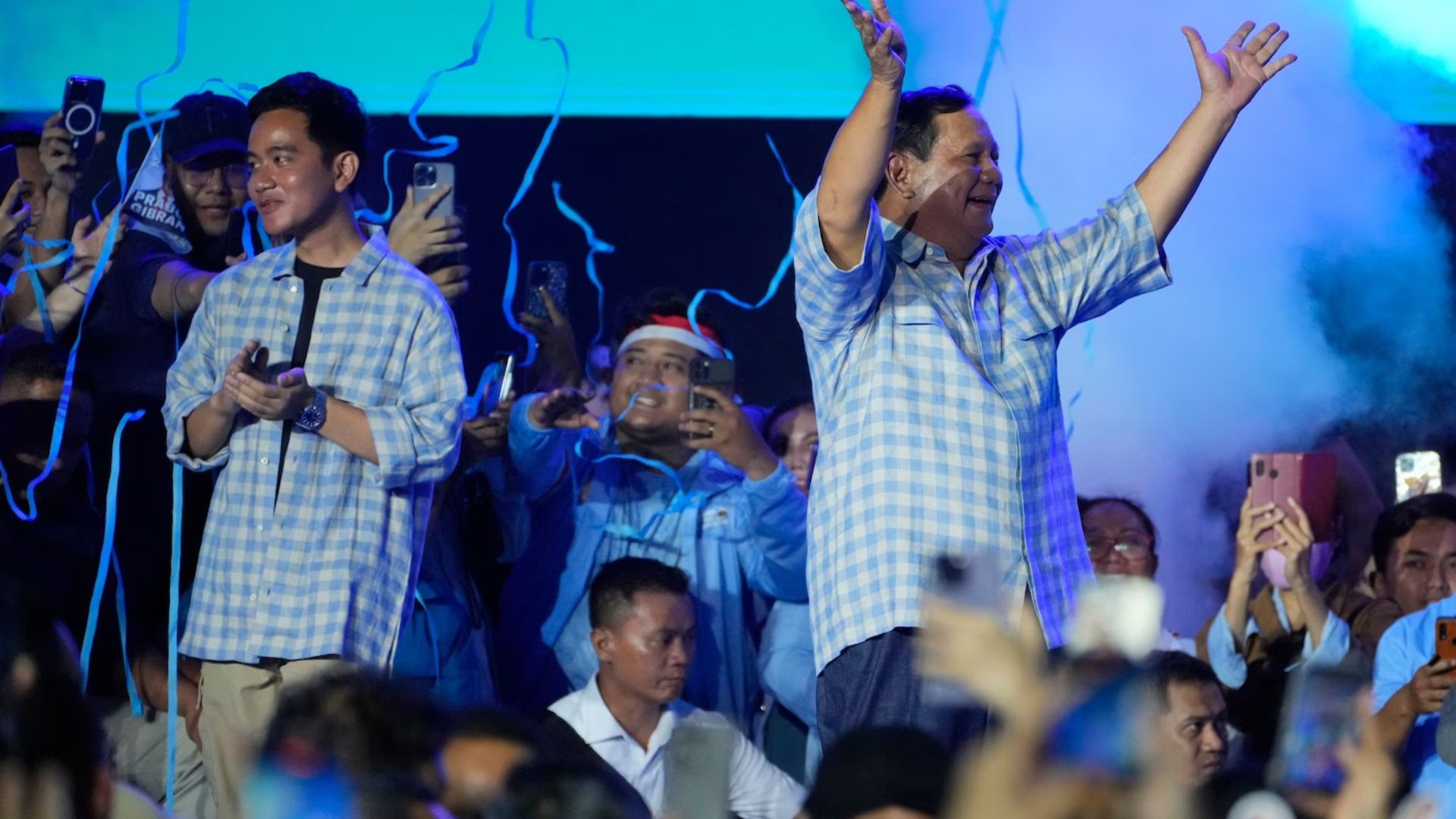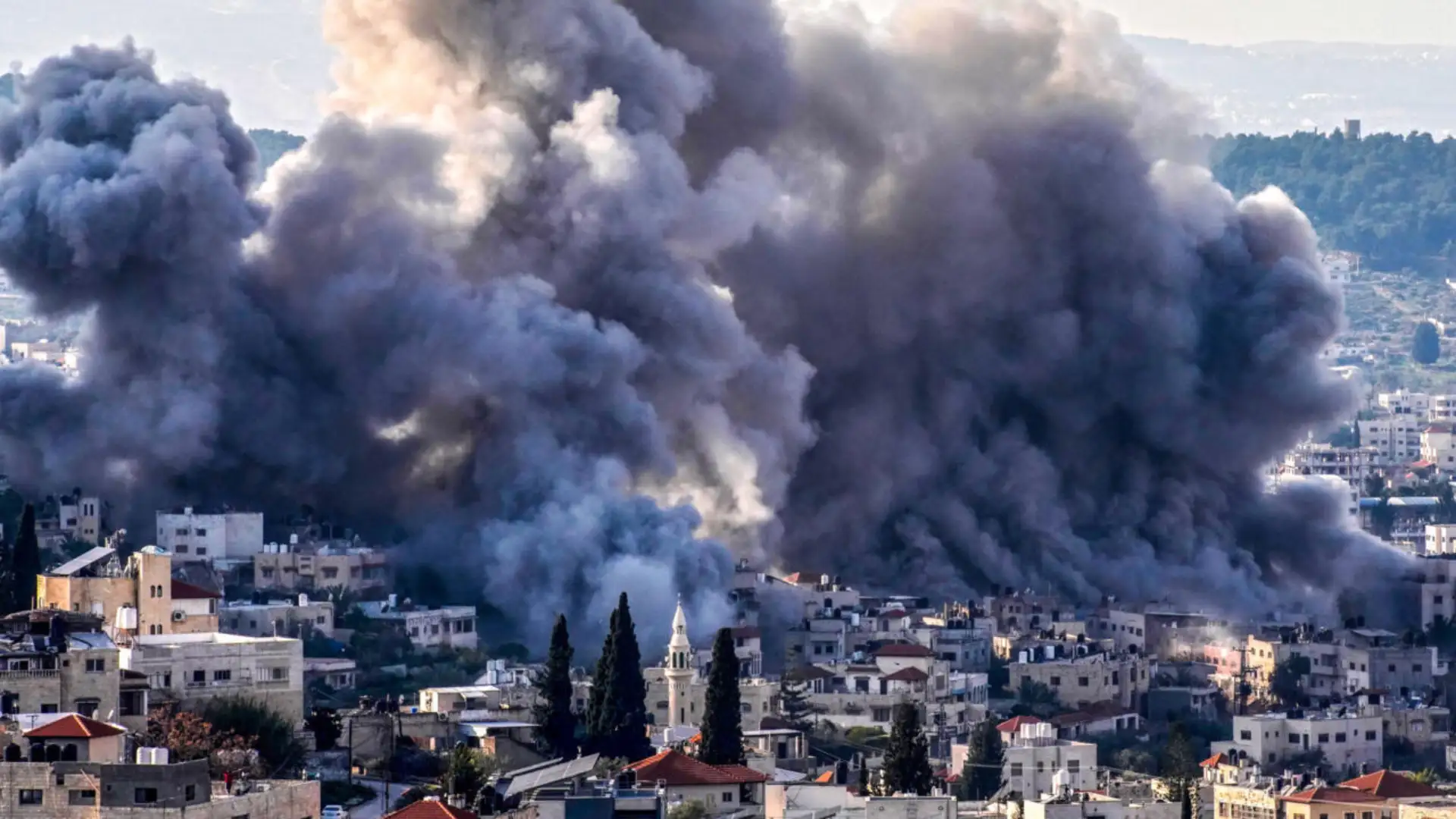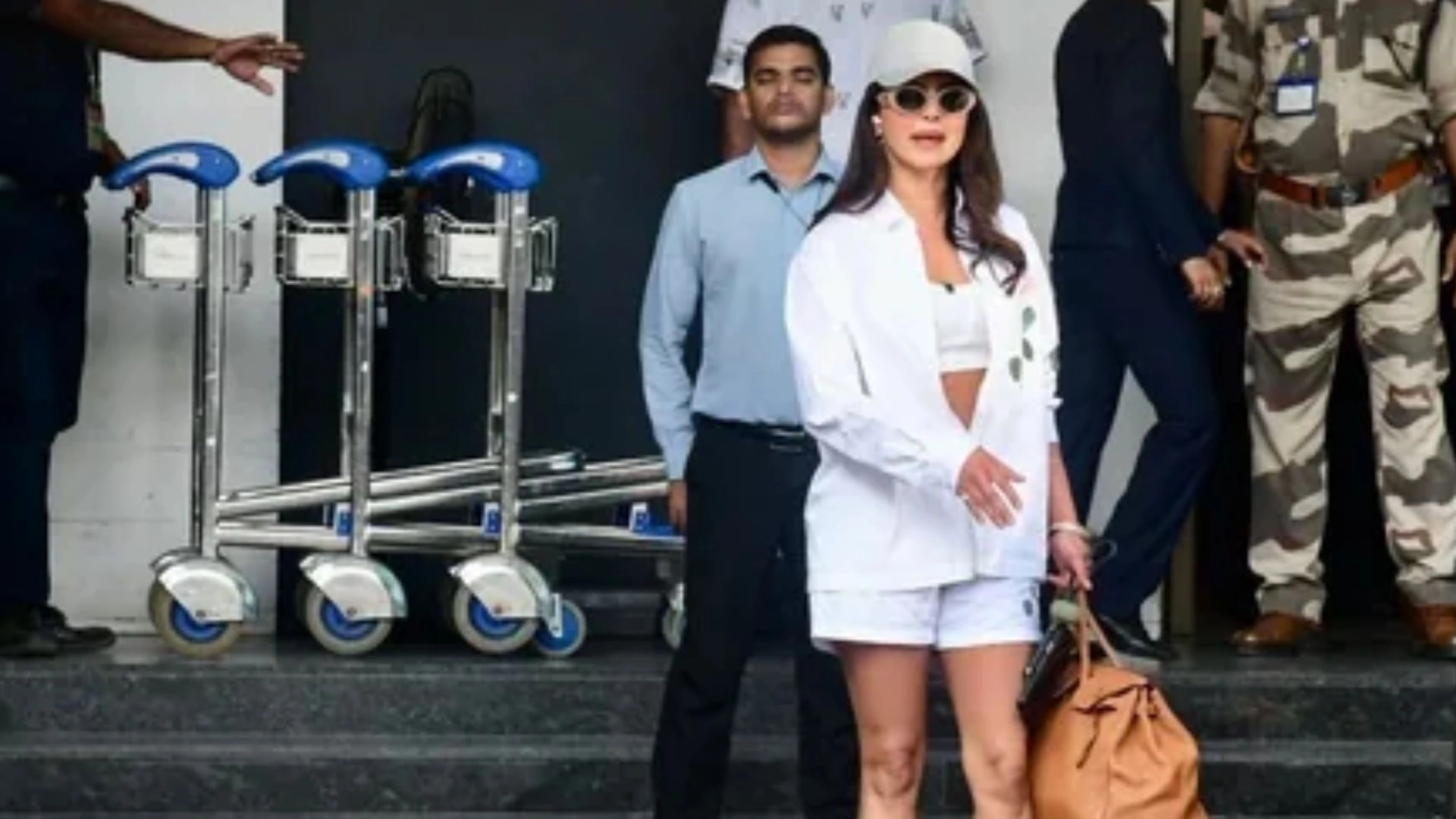A former army general with a controversial past has claimed victory in Indonesia’s presidential election. Before the election on Wednesday, Prabowo, who was considered the front-runner, informed supporters in Jakarta that he and his running mate, President Joko Widodo’s eldest son Gibran Rakabuming Raka, would rule “for all the people of Indonesia.”
“Although we are grateful, we must not be arrogant, we must not be euphoric, we must remain humble. This victory must be a victory for all Indonesian people,” Prabowo declared. “I will lead together with Gibran to nurture, protect and defend all the people of Indonesia, regardless of tribe, ethnic group, race and religion and social background, the people of Indonesia are our responsibility to protect.”
According to the unofficial early count, rival Ganjar Pranowo was in third place and popular former governor Anies Beswadan was running in second place with less than twenty percent of the vote. Party spokespeople cited by Reuters stated that both of their teams have contested the preliminary results and stated it is too soon to declare the election.
Prabowo urged supporters to “calmly wait” for the official vote to be announced by the nation’s election commission, which is scheduled to release its official results in March, during his speech on Wednesday. After the most recent election in 2019, when Prabowo—who had lost—contested the results, deadly riots broke out. The largest Muslim population in the world is found in Indonesia, the fourth most populous nation in the world. On Wednesday, more than 200 million voters in 38 provinces were able to cast ballots in what was billed as the largest single-day election in history.
But casting a ballot in the biggest archipelagic country in the world requires a lot of work. The nation spans three time zones and is larger than the United States. It has more than 150 languages spoken throughout its length, and it is composed of more than 18,000 islands and islets, of which 6,000 are inhabited. Experts point out that young voters have been crucial to the outcome of this year’s election, with the General Election Commission reporting that about half of all registered voters are under 40. After Prabowo, Gibran took the stage and told supporters that “the future we will involve young people,” acknowledging the influence of young voters during the election.

A Prabowo Presidency: What Shifts Can Indonesia Anticipate
Prabowo comes from a wealthy political family, but his past is clouded by controversy, particularly the years he spent working under the late dictator Suharto, who was also his father-in-law. He has been plagued by allegations of human rights abuses during his military service that have followed him into politics. His grandfather Margono established the state bank Bank Negara Indonesia and oversaw a presidential advisory council. His father, Sumitro Djojohadikusumo, was a former minister of finance and trade. He began attending Indonesia’s Military Academy in 1970 and later rose to the rank of special forces commander, leading operations against pro-independence factions in East Timor during Indonesia’s brutal 24-year military occupation.

Also, during the last few months of Suharto’s totalitarian rule, he is said to have given the order to kidnap activists for democracy. During the past ten years, he has emerged as a significant figure in politics and has become an advocate for Indonesia’s thriving democracy. He has also developed a more recent persona as a dependable and amiable grandfather figure. Known by most as Jokowi, the outgoing president Joko Widodo defeated him in both of his presidential campaigns in 2014 and 2019.
Then, when Jokowi appointed Prabowo as defense minister in his cabinet, the two erstwhile rivals put their disagreements aside. He teamed up as Jokowi’s vice presidential nominee this year with Gibran Rakabuming Raka, the eldest son of the president. This was a contentious choice that also aroused strong criticism of Jokowi for alleged meddling as he gets ready to step down.

















